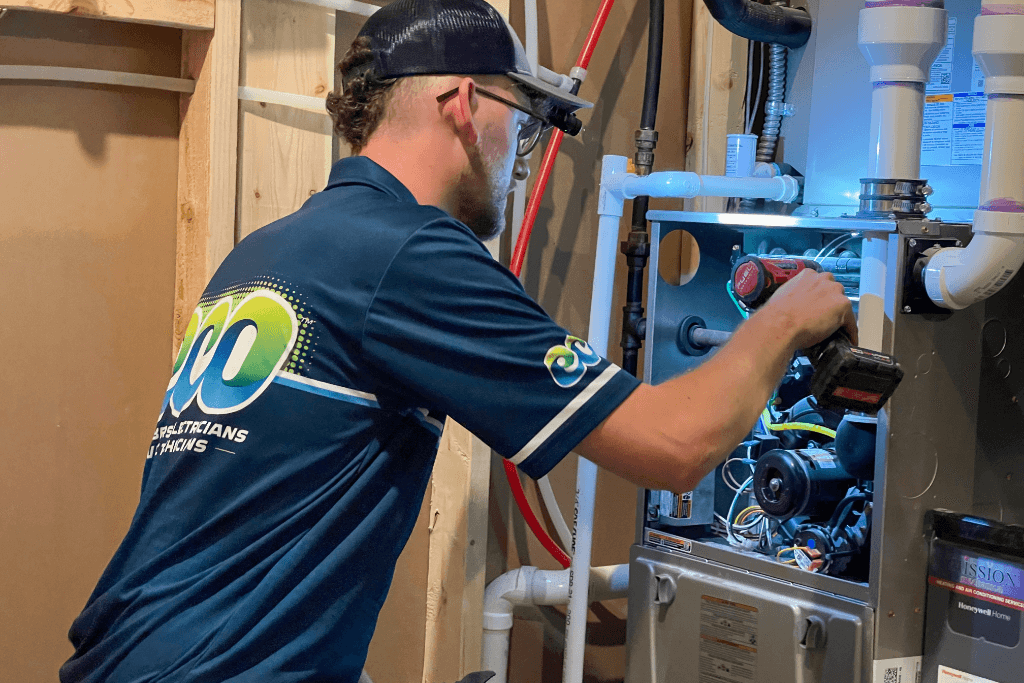When your heating system begins to malfunction, scheduling professional heating services is essential to restore comfort in your home. A well-functioning heating system is crucial for staying warm during the colder months, and addressing issues promptly can prevent more significant problems down the line. But what exactly can you expect when you schedule a heating restoration? Understanding the process, what to expect from the technician, and how to prepare for the service call can guarantee a smoother experience. This article will walk you through everything you need to know to make your heating repair service efficient and stress-free:
1. Initial Call and Scheduling of the Service
The first step when scheduling heating restoration services is reaching out to a professional HVAC company. When you contact a technician, be prepared to provide details about the problem you’re experiencing with your heating system. Is the unit making strange noises? Is there no heat, or is the system inefficiently heating your home? The more information you can provide, the better the technician can prepare for the service call. During this call, the company will schedule a convenient time for the technician to come to your home. You will also be informed about service fees, expected timelines, and any other information related to the service.
2. Technician Arrival and Initial Assessment
When the technician arrives at your home, the first thing they will do is perform a thorough inspection of your heating system. They will check for signs of wear, damage, or malfunction, paying attention to the unit’s components like the thermostat, furnace, ductwork, and airflow. Depending on the issue, the technician may ask you additional questions to narrow down the cause of the problem. This phase is crucial for identifying the root cause of the issue and ensuring that the technician is well-equipped to address it. If necessary, they will discuss the situation with you before beginning the repairs.
3. Diagnostic Test and Evaluation
Once the technician has performed the initial inspection, they will run a series of diagnostic tests to evaluate the heating system’s functionality further. This may include checking the gas pressure, inspecting the ignition system, testing the thermostat calibration, and measuring the airflow. Suppose your heating system uses an electronic control board or any advanced technology. In that case, the technician may use specialized tools to check for error codes and troubleshoot issues that aren’t visible to the naked eye. This step is critical to accurately diagnosing any malfunction and identifying the best course of action for repairs.
4. Discussing the Problem and Recommended Solutions
After diagnosing the issue, the technician will discuss their findings with you and recommend the best solutions. This is when you will be informed about what needs to be repaired or replaced and why. Whether it’s something as simple as a clogged air filter or a more complicated issue like a faulty heat exchanger or motor, the technician will provide a detailed explanation of the problem and the steps required to fix it. If the repair is straightforward, the technician will often provide a price estimate for parts and labor and proceed with the repair. If more extensive repairs or replacements are needed, they will present your options, which may include the cost of parts, labor, and any warranties on the repairs.
5. The Repair Process and Timeline
Once you agree on the recommended repairs, the technician will begin working on your heating system. Depending on the issue’s complexity, this may take anywhere from an hour to several hours. For example, replacing a malfunctioning part may take only an hour, while repairing the furnace or ductwork might take a few hours or longer. The technician will make sure to keep you informed about the progress of the repair, and if any issues arise during the repair process, they will discuss it with you before moving forward.
In some cases, the technician may need to order parts or schedule a follow-up visit to complete the repair. They will communicate the estimated time frame for completion and ensure you know when to expect the necessary parts or follow-up service.
6. Test and Post-Repair Evaluation
After completing the repairs, the technician will test the system to guarantee everything is functioning properly. They will check the thermostat to verify that it is controlling the temperature accurately, inspect the airflow to guarantee proper heat distribution, and monitor the overall performance of the system. This post-repair evaluation is crucial to confirm that the repair was successful and that your heating system is operating at optimal efficiency. If any further adjustments are necessary, the technician will make them before concluding the service call.
7. Providing Maintenance Recommendations
Once the repair is complete, the technician may offer recommendations for maintaining your heating system to prevent future breakdowns. This may include routine maintenance tips like changing air filters, scheduling annual inspections, and ensuring that your heating system is cleaned and serviced regularly. Regular maintenance can significantly extend the lifespan of your heating unit and improve energy efficiency. The technician might also suggest upgrading specific components to improve performance or safety, such as replacing an outdated thermostat with a programmable one or installing a humidifier.
8. Payment and Finalizing the Service
After the repairs are completed and you are satisfied with the work, it’s time to settle the payment. The technician will provide you with an invoice detailing the services performed, the cost of any parts, and labor fees. Some HVAC companies may offer payment plans or financing options for larger repairs, while others may request full payment at the time of service. Make sure to ask about warranties on parts or repairs, as most reputable HVAC companies offer warranties on the work they perform.
Scheduling heating repair services for your home doesn’t have to be stressful if you know what to expect. From the initial phone call to the final payment, understanding the process helps ensure that your system is repaired quickly, efficiently, and safely. Professional heating services not only restore comfort to your home but also guarantee that your system operates smoothly and efficiently for years to come.
Is your heating system in need of repair? Don’t wait for a breakdown to happen! Trust our experts at Eco Plumbers, Electricians, and HVAC Technicians to schedule reliable heating repair services and keep your home warm all season long! Call us now at (855) 326-7586 for immediate assistance.













